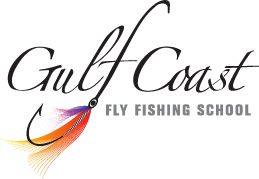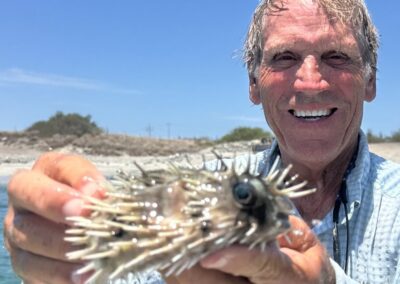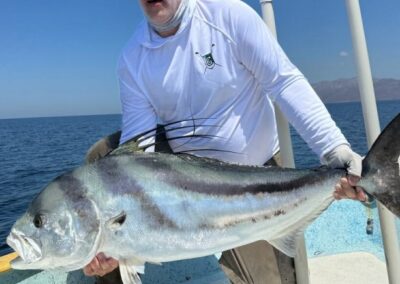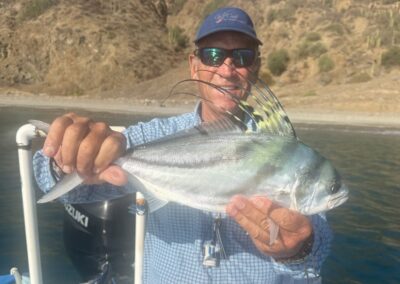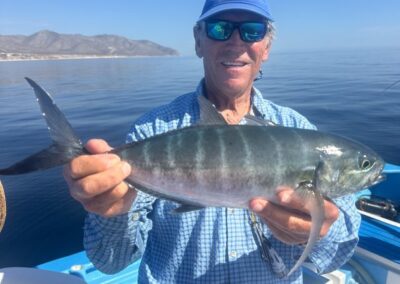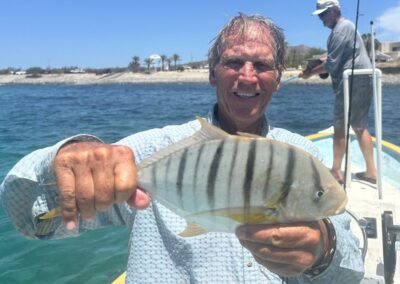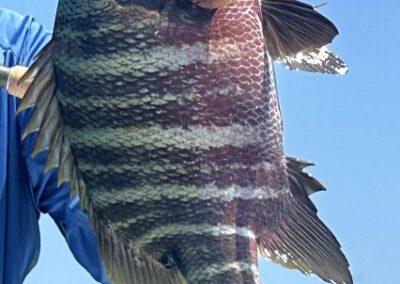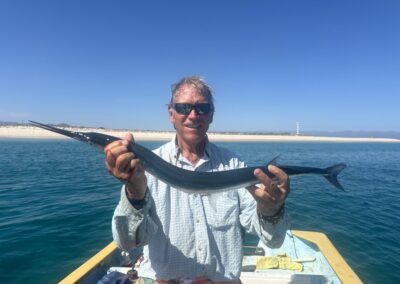Fishing for Roosters
By Thomas R. Dempsey, M.D. CCI.
On the advice of Matt Ramsey, one of my buddies in Eugene, Oregon, who turned us onto the fly fishing in Mongolia, my travel partner, Chris and I decided to go to Cabo San Lucas and try our hand at catching Rooster fish. I had never caught a rooster, but I had seen pictures of them, so it was intriguing when we got the invitation.
It was an easy shot from Mobile to Dallas and Dallas to Cabo. Once there we were picked up and taken to La Venta (which means “the window”.) This was a small town on the Sea of Cortez that is the home of Gary Bulla Rooster Fishing hide out.
Fishing there is quite different than fishing a lot of places. Because of the heat, we got up at 4:00am and had breakfast and were on the water by 5:30am. You fish out of pangas and you do a lot of chumming to get the fish excited.
One of the things that was annoying was the fact that needle fish are everywhere and they are 2-3 feet long instead of 3-4 inches long. They will take your fly in an instant, so you have to learn how not to catch them.
Rooster fish are under the needle fish and are extremely fast. They will hit a fly on a two-handed retrieve.
Besides the roosters we caught a number of other species including bonito, rainbow runners, grouper, yellow jacks, and yellow sprite trevally.
We returned to the camp a little after noon every day because it was so unbelievably hot. Fishing in the afternoon just doesn’t get it. After a siesta and a cocktail, we were served the best Mexican food you will ever eat. We did not have the same dish twice while we were there.
Most of the fishing is done close to shore and the water is crystal clear. You can see the rooster fish scooting around under the needlefish and they seem to just appear out of nowhere. They are great fighters and it was nice to add them to my list of exotic fish caught.
For a great experience and an unbelievable camp with first-class food, try Gary Bulla’s for roosters.
Use a 10 weight or eight weight rod with a sink tip. Line leaders should be tapered from 40 pounds to 30 pounds of pink fluorocarbon. The flies typically are muted colors like brown or off-white. This seems to replicate the bait fish that they eat. Make sure you have several rods and several lines if you decide to go to Cabo because there is no place to purchase anything and you run a high risk of destroying some of your equipment on these big fish.
